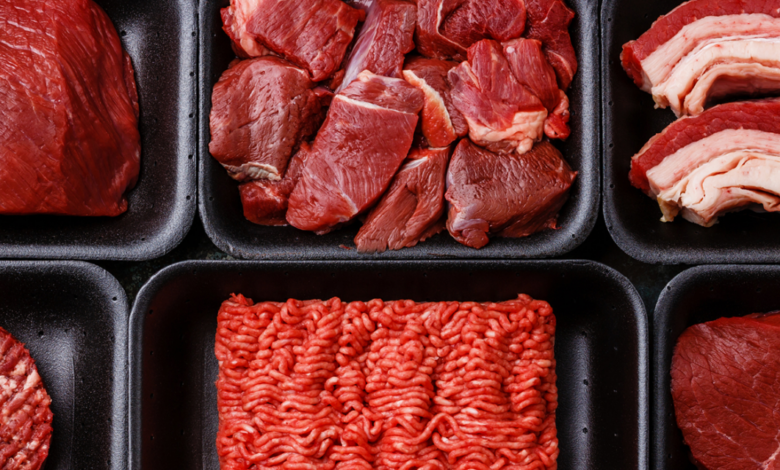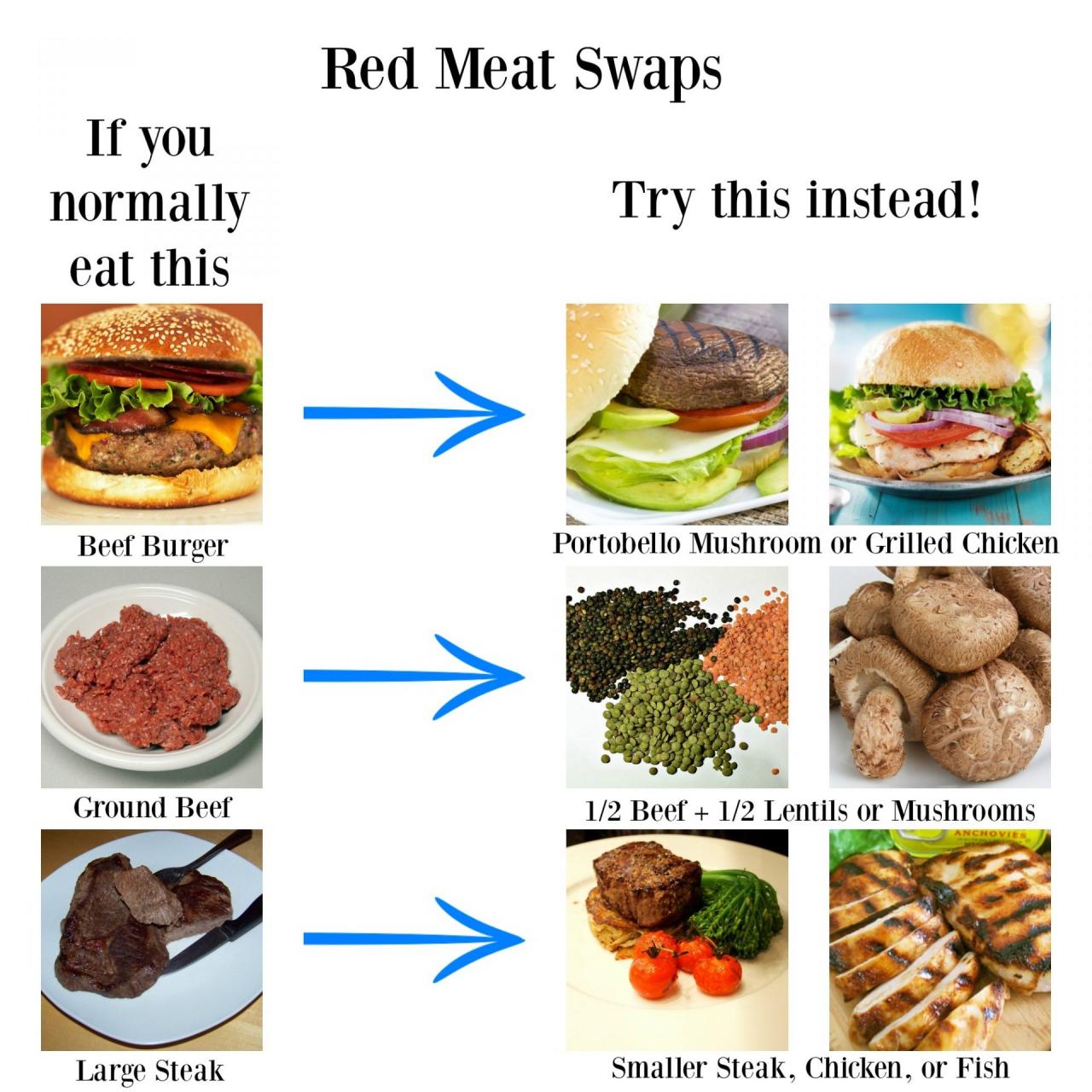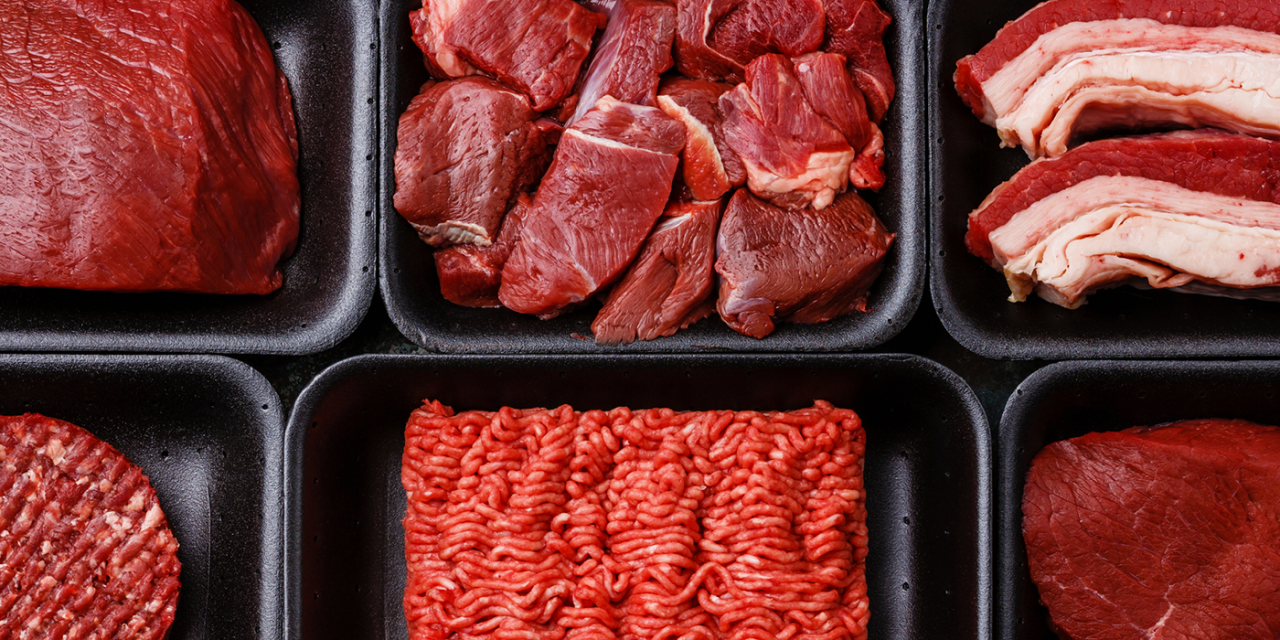
Processed & Unprocessed Red Meat: Diabetes Risk Factors?
Do processed meat unprocessed red meat cause diabetes – Do processed meat and unprocessed red meat cause diabetes? This question has sparked countless debates and fueled ongoing research, leaving many wondering about the potential impact of these dietary staples on our health. While both types of meat offer protein and essential nutrients, their processing methods and nutritional profiles can significantly impact their effects on our bodies.
Let’s delve into the complex relationship between red meat consumption and diabetes risk, exploring the scientific evidence and dietary recommendations to help you make informed choices.
We’ll examine the specific ingredients and processes involved in processed meat production, such as salting, curing, and smoking, and how they may contribute to increased diabetes risk. We’ll also analyze the potential mechanisms by which unprocessed red meat consumption might influence diabetes risk, including its impact on inflammation and insulin sensitivity.
Finally, we’ll compare the nutritional profiles of both types of meat, highlighting potential factors that could influence diabetes risk, such as saturated fat, sodium, and processed sugars.
Processed Meat and Diabetes

Processed meat consumption has been linked to an increased risk of developing type 2 diabetes. While the exact mechanisms are still being investigated, several factors related to the processing methods and ingredients used in processed meat production are believed to contribute to this association.
Ingredients and Processes Involved in Processed Meat Production
The specific ingredients and processes involved in processed meat production that might contribute to diabetes risk include:
- High Salt Content:Processed meats often contain high levels of salt, which can contribute to hypertension, a known risk factor for diabetes.
- Nitrates and Nitrites:These chemicals are commonly used as preservatives in processed meats. They can react with amines in meat to form carcinogenic compounds called N-nitroso compounds. Some studies suggest that these compounds may also contribute to insulin resistance, increasing the risk of diabetes.
The connection between processed and unprocessed red meat and diabetes is complex, and making changes to your diet can be tough. But remember, it’s all about building healthy habits one step at a time. If you’re struggling to stick to your goals, check out this helpful guide on how to stay motivated when starting a new habit.
By focusing on small, sustainable changes, you can gradually reduce your intake of processed meats and make healthier choices that can benefit your overall health and well-being.
- Added Sugars:Many processed meats contain added sugars, which can increase calorie intake and contribute to weight gain, a major risk factor for diabetes.
- High Fat Content:Processed meats often contain high levels of saturated and unhealthy fats, which can increase LDL (bad) cholesterol levels and contribute to insulin resistance.
- Processing Methods:The methods used to process meat, such as smoking, curing, and grilling, can create harmful compounds, such as heterocyclic amines (HCAs), which have been linked to an increased risk of cancer and diabetes.
Effects of Different Types of Processed Meat on Diabetes Risk
While all types of processed meat may increase the risk of diabetes, some types may be more harmful than others:
- Bacon:Bacon is often high in salt, fat, and nitrates, making it a significant contributor to diabetes risk.
- Sausages:Similar to bacon, sausages can be high in salt, fat, and nitrates. The type of meat used and the processing methods can also influence the overall health effects.
- Ham:Ham is often cured with high levels of salt and nitrates, which can contribute to hypertension and diabetes risk.
It’s important to note that these are just some of the potential mechanisms by which processed meat consumption may contribute to diabetes risk. More research is needed to fully understand the complex relationship between processed meat and diabetes.
Unprocessed Red Meat and Diabetes
The relationship between unprocessed red meat consumption and the risk of developing type 2 diabetes is a complex and multifaceted one. While some studies suggest a potential link, others have yielded conflicting results. This section delves into the potential mechanisms by which unprocessed red meat consumption might influence diabetes risk and explores the effects of different cuts of unprocessed red meat on this risk.
Potential Mechanisms
The mechanisms by which unprocessed red meat consumption might contribute to diabetes risk are not fully understood. However, several potential pathways have been proposed.
- Iron Overload:Red meat is a rich source of heme iron, which can be absorbed more readily than non-heme iron found in plant-based sources. Excessive iron intake can lead to oxidative stress, inflammation, and insulin resistance, all of which are implicated in the development of type 2 diabetes.
- Increased Inflammation:Red meat consumption has been linked to increased levels of inflammatory markers in the body. Chronic inflammation is a key factor in the development of insulin resistance, which is a hallmark of type 2 diabetes.
- Changes in Gut Microbiota:The composition of the gut microbiota can influence insulin sensitivity and glucose metabolism. Red meat consumption may alter the gut microbiome in ways that promote inflammation and insulin resistance.
- Saturated Fat Intake:Red meat, especially fatty cuts, is high in saturated fat. Excessive saturated fat intake can contribute to insulin resistance and increased risk of type 2 diabetes.
Effects of Different Cuts, Do processed meat unprocessed red meat cause diabetes
The effects of different cuts of unprocessed red meat on diabetes risk may vary.
While the link between processed and unprocessed red meat and diabetes is still being investigated, it’s fascinating how our understanding of weight loss is evolving. Check out this article on why eating more might be the secret for weight loss – it might just change how you approach your diet! Of course, it’s crucial to remember that a balanced diet and regular exercise are key to managing diabetes risk, regardless of your meat consumption.
- Lean vs. Fatty Cuts:Lean cuts of red meat, such as sirloin or round, are generally lower in saturated fat and may be associated with a lower risk of type 2 diabetes compared to fatty cuts, such as ribeye or brisket.
- Processed vs. Unprocessed:It is important to distinguish between unprocessed red meat and processed red meat. Processed red meat, such as bacon, sausage, and hot dogs, is associated with a higher risk of type 2 diabetes compared to unprocessed red meat. This increased risk is likely due to the added salt, sugar, and preservatives in processed meats.
While we’re on the topic of health, it’s important to remember that processed meats, unlike unprocessed red meat, have been linked to an increased risk of diabetes. If you’re looking for a delicious and healthier alternative to traditional enchiladas, try this skinny enchilada casserole recipe.
It’s packed with flavor but lighter on the calories and fat, making it a great option for those watching their weight or managing diabetes.
Factors Influencing Risk
While unprocessed red meat consumption may be associated with an increased risk of type 2 diabetes, several other factors can influence this risk, including:
- Genetics:Some individuals may have a genetic predisposition to developing type 2 diabetes.
- Lifestyle Factors:Physical activity, smoking, and overall diet can all play a role in diabetes risk.
- Other Dietary Factors:Consumption of other foods, such as fruits, vegetables, and whole grains, can influence diabetes risk.
Nutritional Differences

Understanding the nutritional differences between processed and unprocessed red meat can shed light on their potential roles in diabetes risk. While both types provide protein, iron, and other nutrients, they vary significantly in their content of saturated fat, sodium, and processed sugars, which can impact metabolic health.
Saturated Fat, Sodium, and Processed Sugars
Processed meats undergo significant transformations, often involving added salt, sugar, and preservatives. This manipulation can lead to a higher content of saturated fat, sodium, and processed sugars, all of which have been linked to increased diabetes risk.
Saturated fat, when consumed in excess, can contribute to elevated LDL (bad) cholesterol levels, which can lead to plaque buildup in arteries and increase the risk of heart disease. This, in turn, can raise the risk of developing type 2 diabetes.
Sodium, a key ingredient in many processed meats, can raise blood pressure, which is a major risk factor for diabetes. High blood pressure puts extra strain on the kidneys, making them less efficient at filtering blood sugar, further increasing diabetes risk.
Processed sugars, like high-fructose corn syrup, are commonly added to processed meats to enhance flavor. These sugars can contribute to insulin resistance, a key characteristic of type 2 diabetes. Insulin resistance makes it harder for the body to use glucose for energy, leading to higher blood sugar levels.
Potential Benefits and Drawbacks of Unprocessed Red Meat
Unprocessed red meat, such as beef, lamb, and pork, provides a source of protein, iron, zinc, and vitamin B12. These nutrients are essential for various bodily functions and overall health. However, unprocessed red meat is also high in saturated fat, which, as mentioned earlier, can contribute to elevated LDL cholesterol levels and potentially increase diabetes risk.
Moderate consumption of unprocessed red meat, as part of a balanced diet, can be part of a healthy lifestyle. It’s important to choose lean cuts, trim visible fat, and prepare meats in healthy ways, such as grilling, baking, or roasting, to minimize the intake of saturated fat.
Final Summary: Do Processed Meat Unprocessed Red Meat Cause Diabetes

Understanding the complex relationship between red meat consumption and diabetes risk is crucial for making informed dietary choices. While both processed and unprocessed red meat can be part of a balanced diet, moderation is key. By prioritizing lean protein sources, maintaining a healthy weight, and engaging in regular physical activity, you can significantly reduce your risk of developing type 2 diabetes.
Remember, research in this area is constantly evolving, so staying informed and consulting with healthcare professionals is essential for making personalized dietary decisions.






